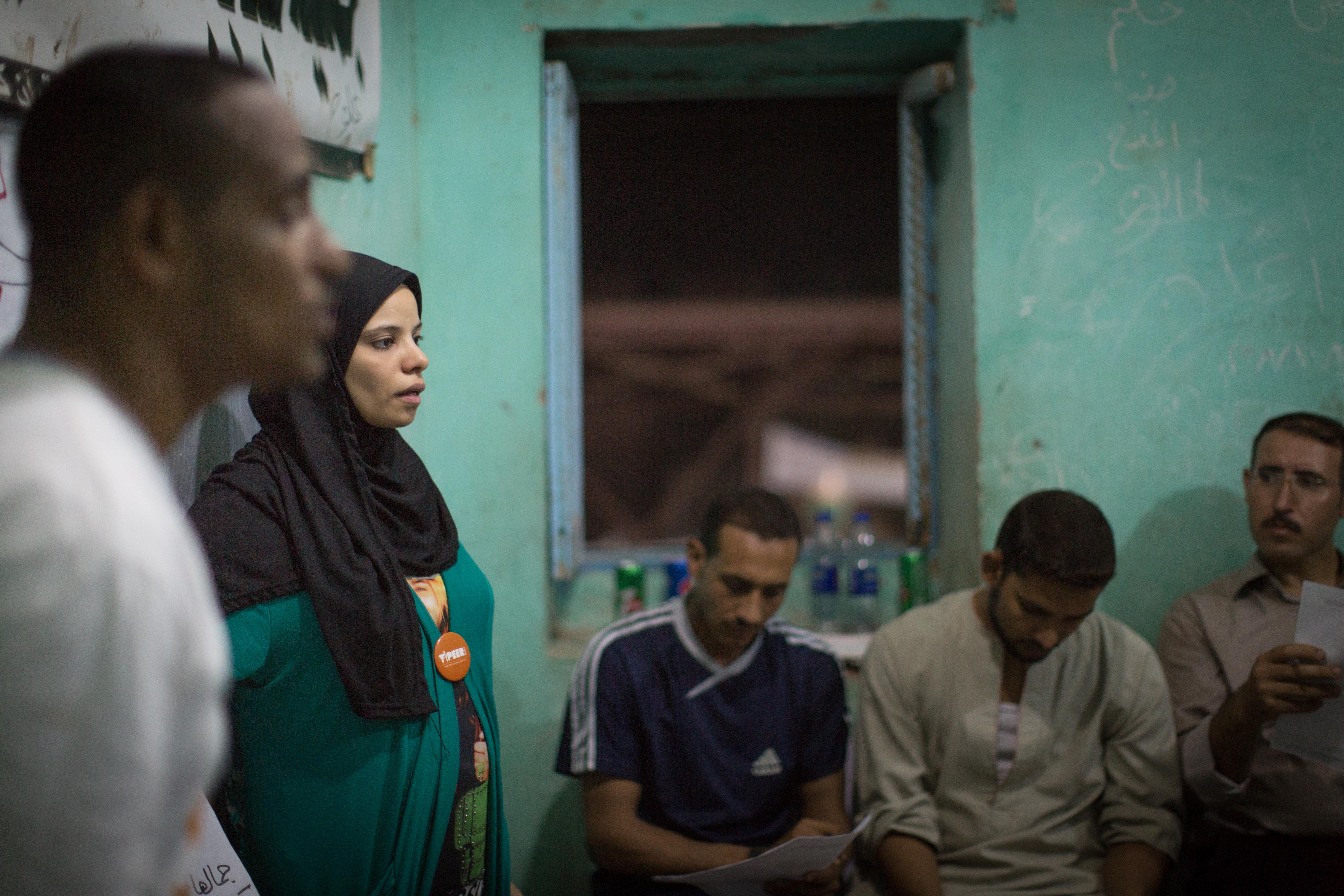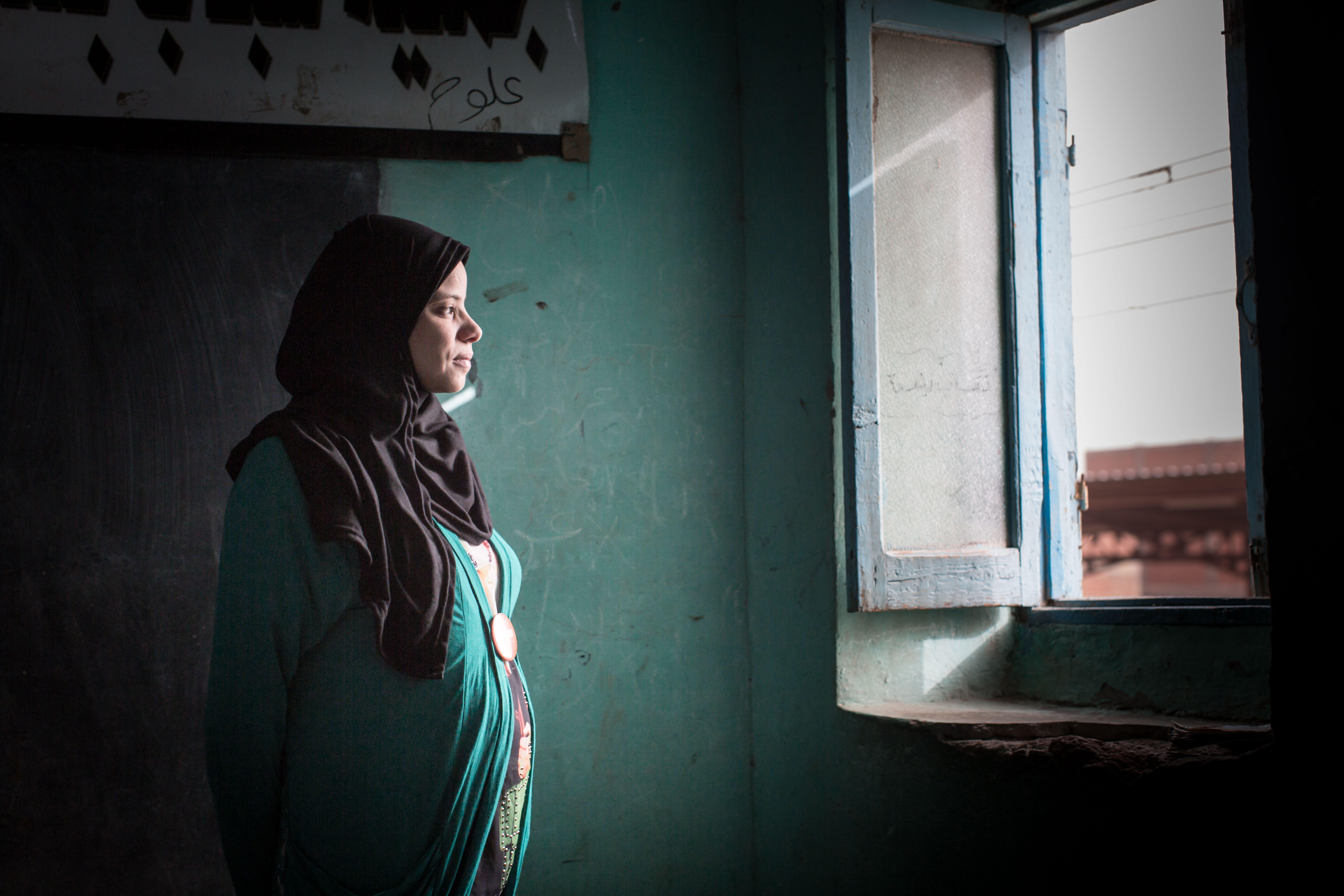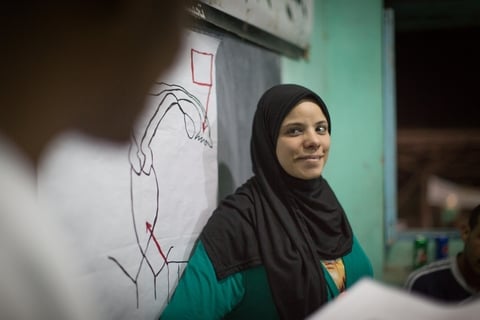Shaimaa Ahmed Aly looks like any young and healthy woman in Egypt. At age 27, she has been married for one year and is now pregnant with a baby girl. Shaimaa is a force of nature; she has been working to support her family since she was much younger, refusing any help or charity from friends and relatives, taking care of her family since her father died.
Like many Egyptian women, Shaimaa underwent female genital mutilation (FGM) when she was around 10 years old, a traumatic experience that is estimated to affect 61 percent of 15-17 year old girls in Egypt, according to the latest figures by the national Demographic and Health Survey (DHS). FGM is widespread in Egypt despite its being criminalized since June 2008, with 92 per cent of Egyptian married women between the ages of 15 and 49 having been subjected to it. Although recent figures in Egypt show that FGM has clearly decreased in the younger age groups (15-17) from 74 per cent in 2008 to 61 per cent in 2014, the practice is still alarmingly common.

FGM is a practice that involves altering or injuring the female genitalia for non-medical reasons, and it is internationally recognized as a human rights violation. Globally, it is estimated that 200 million girls and women alive today have undergone some form of FGM. In countries where FGM is still a practice, families celebrate the mutilation of their child and consider it a festive occasion. In reality, research has proven that the effects of FGM on a woman’s body and psychological health are devastating and long lasting.
After attending a training on the consequences of FGM, organized by UNFPA and the Y-PEER youth network in her village of Assiut, Shaimaa became an advocate in her community. Working closely with mothers, fathers and community leaders, she has been relentless in her efforts to combat a practice that is neither medically necessary nor religiously required. Since May 2015, Shaimaa has given 11 training sessions in seven villages, targeting young men and women between the ages of 18 and 25. “My aim is to educate every boy and girl about the harmful and unnecessary effects of FGM,” says Shaimaa as she prepares for a session with young people. “One day they will become fathers and mothers, and I want them to have the information that will make them take the right decisions for their children: Girls should not be mutilated.”
Shaimaa met her husband, Alaa, at work. They are a happy couple and he is very supportive of her convictions and her advocacy. Shaima emphatically says that she will not have their daughter mutilated, something that she and her husband have agreed on. “I will soon be the happy mother of a baby girl. I will definitely not have her circumcised. My husband and I agree on that. She will grow up to be a strong and healthy girl!” says Shaimaa.
With her best friend Sabreen, Shaimaa runs numerous group sessions where she talks to boys and girls about the need to abandon FGM. “Sabreen is my best friend; we met at a training session on FGM organized by UNFPA and the very dynamic young group of volunteers called Y-PEER. I will call my daughter Sabreen, after her. I want her to be brave like the big Sabreen,” she says with a twinkle in her eye. Shaimaa, Sabreen and a larger group of trainers run educational and awareness sessions about the harmful effects of FGM. “We want to change perceptions of girls and boys on this socially accepted practice,” says Shaimaa.
The 2014 Demographic and Health Survey also showed that nearly 60 percent of women aged 15-49 believed the practice should continue, as FGM is deeply rooted in Egyptian tradition, and is often mistakenly believed to be a religious mandate. Another alarming figure in the 2014 DHS is that doctors account for 74 percent of the procedure, while nearly 8 percent of FGM cases are handled by nurses and health workers across the country.
UNFPA and UNICEF have been running a joint programme since 2008, working at the community, district and national levels to help eliminate the practice of FGM. The joint programme focuses on policy and law enforcement, the role of service providers, and works from within the communities on changing their attitudes towards FGM. UNFPA has organized widespread TV campaign on the elimination of FGM, has worked closely with religious leaders both Muslim and Christian, has joined forces with the ministry of health to combat the medicalization of the practice, and has reached out to the communities including by engaging them in interactive theatre performances on FGM amongst a number of other projects.
UNFPA works with a range of governmental, religious and civil society partners and supports the National Population Council in implementing the National FGM Strategy 2016-2020.



